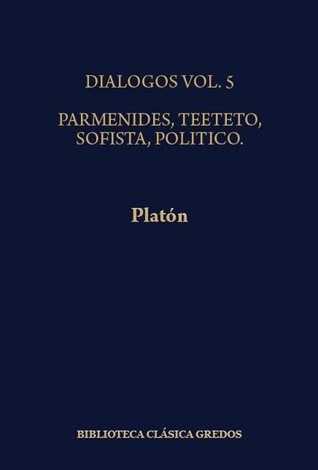Plato Plato

Phaedo
Plato Plato

The Trial and Death of Socrates (Euthyphro, Apology, Crito, Phaedo)
Plato Plato

Apology
Plato Plato

The Republic
Plato Plato

The Symposium
Plato Plato

The Apology of Socrates by Plato
Plato Plato

Selected Myths
Plato Plato

Le Sophiste
Plato Plato

Théétète
Plato Plato

Republic
Plato Plato

The Collected Dialogues of Plato
Plato Plato

The Laws of Plato
Plato Plato

Crito
Plato Plato

Apology of Socrates
Plato Plato

Five Dialogues: Euthyphro, Apology, Crito, Meno, Phaedo
Plato Plato

Symposium
Plato Plato

Timaeus and Critias
Plato Plato

Apologia di Socrate
Plato Plato

Defensa de Sócrates | El banquete | Fedro | Menón | Critón | Hipias menor | Ion
Plato Plato

Meno
Plato Plato

Phaedrus (Hackett Classics)
Plato Plato

Parménides/Teeteto/Sofista/Político (Diálogos V)
Plato Plato

Apología de Sócrates. Menón. Crátilo
Plato Plato

Бенкет
Plato Plato

The Allegory of the Cave
Plato Plato

Socrates' Defence
Plato Plato

Simposio
Plato Plato

The Symposium/The Phaedo
Plato Plato

Plato: Complete Works
Plato Plato

Parmenides
Plato Plato

Philebus
Plato Plato

The Republic and Other Dialogues
Plato Plato

Republic: The Theatre of the Mind
Plato Plato

Theaetetus
Plato Plato

Republic: Books 6-10 (Πολιτεία, #2)
Plato Plato

Republic: Books 1-5
Plato Plato

The Last Days of Socrates
Plato Plato

Gorgias
Plato Plato

The Apology
Plato Plato

Ión. Timeo. Critias
Plato Plato